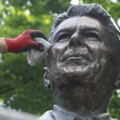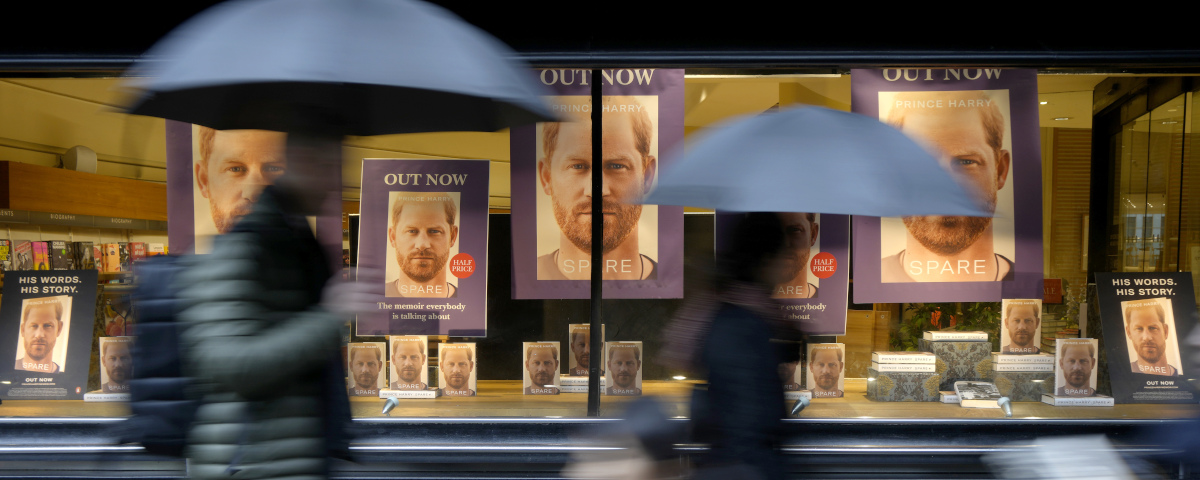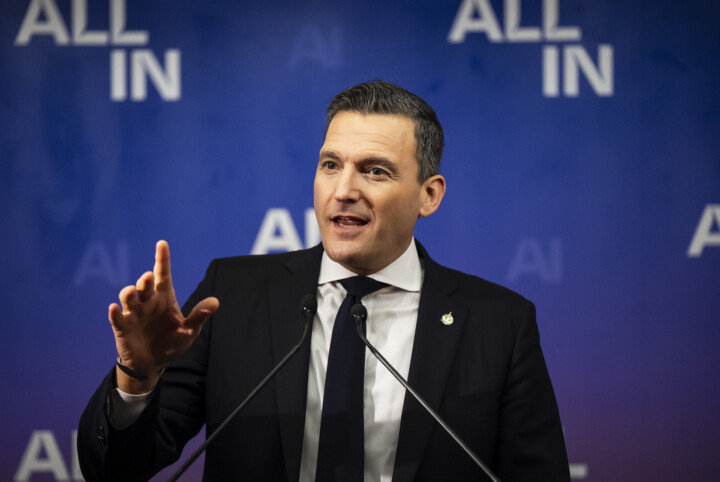We normally take things pretty seriously at The Hub, so we’re delighted to have veteran comedy writer Mark Hill joining us every other Friday to take a lighter look at the week’s events. This week, in his inaugural column, Mark reaches out for the low-hanging fruit offered by Prince Harry’s new memoir.
George Orwell, the famous author of A Clergyman’s Daughter, called the British monarchy “an escape-valve for dangerous emotions.” I mention this because quoting better writers is an easy way to pad one’s word count, but also because the observation helps explain why Prince Harry’s memoir is selling like hotcakes laced with heroin.
Canadians have been split on the role of the monarchy for decades, with 54 percent of respondents to an Ipsos poll following Queen Elizabeth II’s death saying that now is the time to sever our ties to the crown, and 58 percent agreeing the issue is worthy of a referendum. Trudeau has deemed the matter untouchable, but don’t feel bad for our ostensible majority of republicans; another poll found that the dominant Canadian emotion towards the monarchy is sheer indifference. Canadians will share their opinions if prodded, but otherwise we give the House of Windsor about as much thought as tapioca pudding.
And yet we’re awash in stories about Canadian libraries and bookstores experiencing a massive demand for Harry’s memoir, Spare. In the Vancouver Sun, a bookseller compared it to Mary Trump’s memoir and the Game of Thrones series. In the United Kingdom, it’s already the bestselling nonfiction book on record. It’s also a smash hit in the United States, where our American cousins can’t even claim to be buying it solely to educate themselves on the role of the monarchy in their society.
We can call it a poignant look inside the fishbowl all we like, but it’s clear Spare taps into an eternal human need for bitchy gossip. You don’t have to have a strong stance on constitutional monarchy to understand why stories about the richest of rich kids losing his virginity, doing blow, and scrapping with his brother are destined to produce a bestseller. For all the opinion pieces about how this is either a stern blow to the dignity of Buckingham Palace or a 400-page tantrum, Spare is only of interest because it’s a salacious look at a life so few of us get to live.
That, strangely, circles back to Orwell’s argument: that the monarchy gives us all the pomp and pageantry of politics without the power. “Modern people,” he argued, “can’t get along without drums, flags and loyalty parades, and that it is better that they should tie their leader-worship on to some figure who has no real power.” We all have opinions on how the economy should be run, and apparently we all have opinions on who Harry should have shacked up with, but it’s for the best that these views are not conflated.
In Orwell’s time, he observed that constitutional monarchies best avoided the allure of fascism and its endless parades. The obvious update to our era is the stupid cruelty of Trump, whose interminable rallies sucked up all of America’s oxygen by simultaneously being the nexus of power, ceremony, and newsworthy nonsense. It’s a lot easier for a president to pretend to be king when there’s no actual king who will retain his throne long after the president’s been shown the door.

Of course, British politics haven’t exactly been a lodestar of competent governance lately, so it’s not a perfect rule. Still, we don’t hear much about the royalty-retaining Danish and Dutch flirting with extremist politics. It’s the Italian Republic that recently elected a Mussolini sympathizer, and zealots in the Republic of Brazil who made a violent attempt to overturn an election and reinstall Jair Bolsonaro, the world champion of catching COVID.
Ideally, the “inoculating effect” that Orwell wrote about would be focused more on Mary Simon handing out literary awards and Prince William’s mental health initiatives than Harry smoking weed and getting really into Friends, but we have to take what we can get in life. We only need look across the border to be grateful for anything that distinguishes us from the Americans, so if someone in your life breathlessly regales you with stories of Prince Harry’s frostbitten nethers, try to be patient. The alternative is that they could be really into Donald Trump.
Recommended for You

‘Media manufactured?’: The Full Press on if journalists created a fictional Conservative coup

CBC hired 84 percent racialized, Indigenous, or disabled while having job vacancies for top talent: Internal report

MAID is devaluing the lives of Canadians with dementia

A definition of racism that targets Jews is racist



